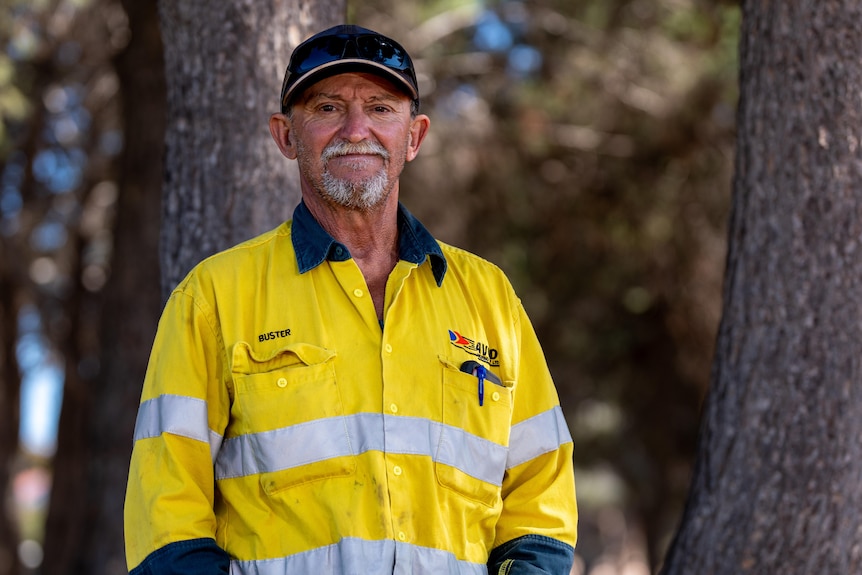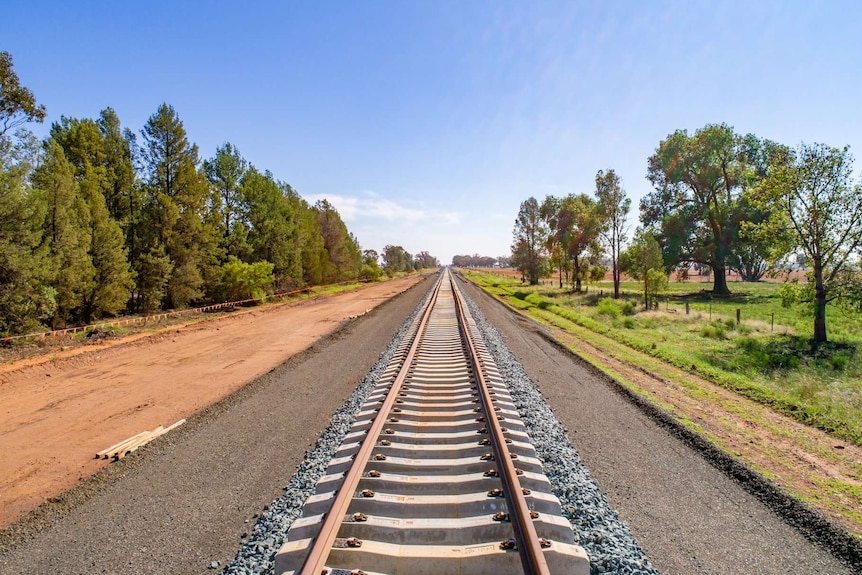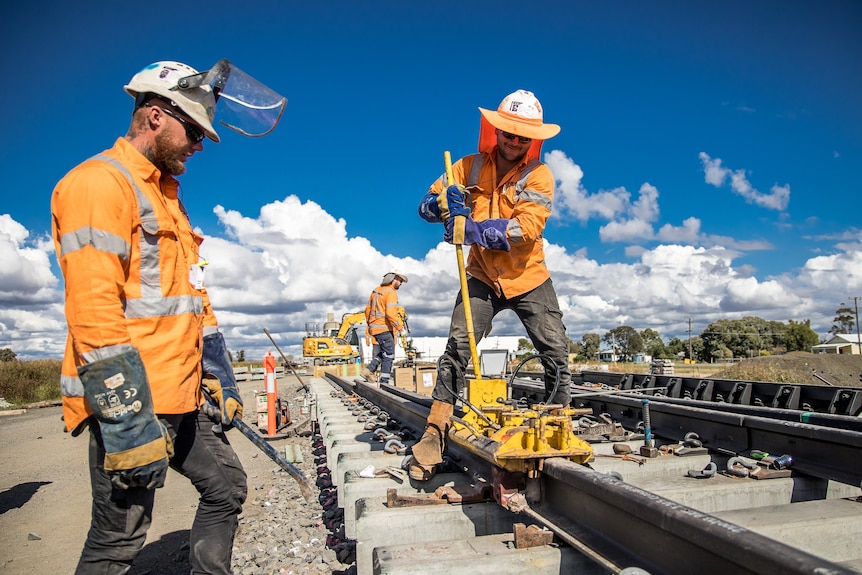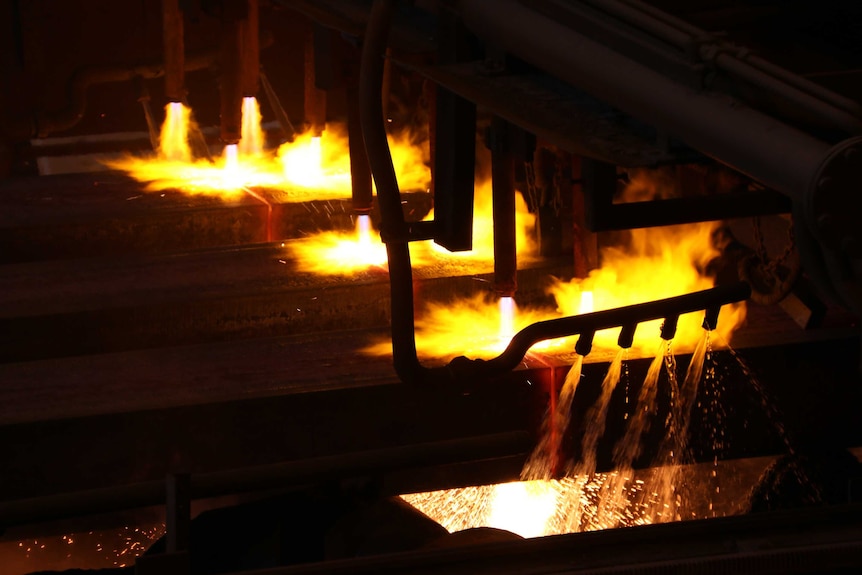The oft-repeated platitude about those who forget the past being “condemned to repeat it” does not do justice to Whyalla.
In the South Australian regional city, which supplies steel for the nation’s rail and construction industries, locals are currently reliving history that many remember only too clearly.
Eight years ago, Whyalla and its steelworks were plunged into a period of prolonged uncertainty, after owner Arrium accumulated debts in the billions.
“I was with Arrium when it went into administration,” said Buster Todd, a Whyalla resident of 56 years.
“It was certainly a better place to work when it was in administration than it is now.”

In 2016, the “Whyalla wipeout” that former trade minister Craig Emerson had dismissed as a scare campaign suddenly seemed not only possible but imminent.
Over the next 18 months, the town’s plight alternated between limbo and turmoil, before a deal to “save” the plant was struck with British industrialist Sanjeev Gupta, owner of the GFG Alliance Liberty Steel Group.
In recent weeks and months, however, fresh signs have emerged of a looming groundhog day — earlier this month, GFG said it was cutting costs, including on maintenance work, as it contended with a global slump in steel prices.
“When Arrium was likely to be going through administration, the feeling then within the community was that, well, it’s not going to close down, somebody will come along,” Whyalla Mayor Phill Stone said.
“It is vastly different now, the feeling within Whyalla.”

The situation is already claiming casualties with 48 jobs axed at the steelworks in August with GFG blaming a prolonged downturn in the steel market conditions globally.
Sources have told ABC News that contractors who supply services to Whyalla’s steelworks are owed tens of thousands of dollars by GFG, while the plant’s blast furnace remains offline.
On Thursday, the company confirmed that limestone was “restricting internal slag movement” in the furnace, and that the company was taking “remedial measures to deal with unwanted material which may have crept in”.
Mr Todd, who works for a local engineering company, said that he and 18 colleagues would also lose their full-time jobs because of reduced demand from the steelworks.
“This is why I’m not scared to speak, but next Friday, I am made redundant. I no longer have a job,” he said earlier this week.
“I’ll get some casual work, potentially seven days in a six-week period. That’s not enough.”
‘Important strategic city for the country’
The story of Whyalla has been told and retold, and is often framed as a tale of a town and its steel plant. That is not an inaccurate picture, but nor is it a complete one.
While jobs are on the line, and the city’s future is at stake, saving the steelworks isn’t just about protecting a regional population — what happens in Whyalla could have broader implications for the nation.
“Whyalla is a very important strategic city, not just for this state but for the country,” South Australia’s Infrastructure Minister Tom Koutsantonis said on Tuesday.

The Whyalla steelworks is, according to GFG, the nation’s only Australian-based manufacturer of rail, and the country’s two major political parties are in unison when it comes to the plant’s importance.
State Labor MP Eddie Hughes has previously described the plant as an “integral part” of Australia’s “sovereign manufacturing capacity”, while federal Liberal MP Rowan Ramsey said it was the nation’s only “manufacturer of the structural steel for bridges, industrial complexes, docks and high quality rail”.
In March 2022, GFG announced it had entered a deal with the Australian Rail Track Corporation (ARTC) to deliver 147,000 tonnes of steel over three to five years, including to Inland Rail, a project to create an inland fast freight corridor from Melbourne to Brisbane.
“The contract will see more than 2,400km of rail manufactured in Whyalla for the Inland Rail track … and other ARTC projects,” the company said at the time.

The ABC asked ARTC how much of that steel had so far been delivered, but the company declined to provide a figure.
Instead, it said it continued to receive steel products from Whyalla “under our commercial contract”, but added that it was engaging with the company “about industry challenges”.
“Orders for steel are placed on an as needed basis and have continued throughout 2024 to furnish various rail projects including Inland Rail,” a spokesperson said.
“ARTC monitors the financial, operational and safety performance of all key suppliers including Whyalla Steelworks to ensure we maintain a safe and reliable rail asset and timely delivery of major infrastructure projects.
“ARTC has been engaging with Liberty Primary Steel about industry challenges; we enjoy a longstanding relationship with them, and we are a proud supporter of Australian industry and regional communities.”
Resilient town ‘cannot fail’
Both the federal and state governments have been asked whether they would consider investing in the steelworks to shore up its long-term sustainability.
Federal Industry Minister Ed Husic said it was “premature” to be “talking that way from a federal level”.
“The best thing to do is, as I’ve said, for the operators, for GFG, to be open about what’s going on and to let us know,” he told ABC Radio Adelaide on Wednesday.
“The firm has not said that it is shutting down and I think it’s important again, while there might be issues with some creditors, it’s not the case across the board.”

Mr Koutsantonis said the state government was not interested in “partnering” with the steelworks’ current owner, but was staunchly committed to supporting the business in other ways, including through the multi-billion-dollar North-South Corridor road project.
“The government’s placing an order of 130,000 tonnes of steel from GFG for the North-South Corridor. We’re in negotiations with them now about that,” he said.
“We want to make sure we can use our procurement to make sure the steelworks has got a long-term future.
“Whyalla cannot fail. It cannot fail.”
Speaking at a community forum on Sunday, Mr Todd said he was “not interested in all the political stuff” — what mattered to him, he said, was “Whyalla and the people here”.
“We’ve been through a lot,” he said.
“We’re a very resilient town.”
ABC News


